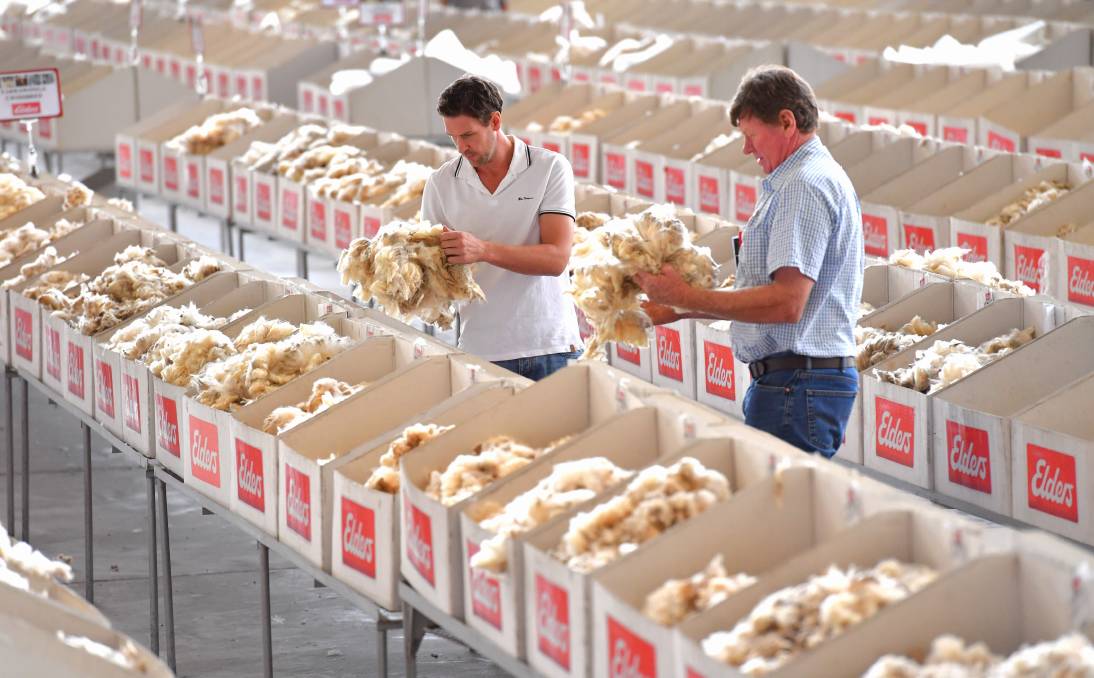Australian Wool Industry Working Together to Future Proof Wool Fibre
Five leading Australian wool industry groups are jointly working to develop a mechanism that sets the industry up for success into the future.
Australian Council of Wool Exporters and Processors (ACWEP), Australian Wool Exchange (AWEX), Australian Wool Innovation (AWI) and the National Council of Wool Selling Brokers of Australia (NCWSBA) have undertaken extensive discussions over the past 9 months to assess the current industry landscape as well as the challenges and opportunities that exist today and into the future. More recently the group has involved the Australian Wool Testing Authority (AWTA) to bolster a more comprehensive industry approach.
The key focus of this collaboration is to allow the Australian industry to better meet the evolving needs of their global customer base in terms of sustainability and traceability. Additionally, it will assist in addressing the growing threat of an exotic animal disease (EAD) outbreak.
To achieve these outcomes, the groups believe the key success factor will be to work together as an industry and utilize the multiple digital assets that already exist in the industry today. In doing so, the industry can leverage its highly developed and trusted assets to validate Australian wool credentials for our global customer base.
Over the last 12 months, key industry initiatives include:
- Digitalisation with e-speci collaboration between AWEX and AWI
- eBale – from July 2023 every wool pack imported into Australia will carry technology that will allow traceability from farm to retailer
- AWI / Woolmark Supply Chain Builder software tool developed by Everledger to assist wool growers and their customers with traceability and
- Very significant growth in the capture and transfer of PIC data by sellers to AWTA which would facilitate rapid response in the event of an EAD outbreak.
- Sheep Sustainability Framework – funded by AWI and MLA
ACWEP President Josh Lamb says co-operation across the industry is the key.
“Australian wool is recognised among its customer countries as the world’s best for its quality. There is also recognition within the industry that there is an increasing requirement to demonstrate to Australia’s global customer base that Australian wool is grown, processed and transported in accordance with emerging international Standards for Sustainability and Traceability.
The Australian wool industry is coming together to ensure it remains the world’s premier wool clip for future generations”.
AWEX Chief Executive Mark Grave agrees and added.
“The Australian wool industry has continued to develop and implement innovative solutions for the benefit of all industry participants. The investment in cutting edge technology underpins our integrity programs, information systems and quality schemes. These systems have been developed in consultation with our stakeholders, spanning from the wool producing farms through to the manufacturers, and ultimately the retailer and consumers.
By working collaboratively, the Australian wool industry can leverage these assets and maintain Australia’s position as the foremost and preferred supplier of premium quality wool to the world.”
AWI Chief Executive Officer John Roberts says there is a strong case for industry wide collaboration.
“We know that any success in this space will only be achieved via an all of industry approach to the challenge of an ever-growing shift towards sustainability and traceability. It’s something that our international customers are demanding and it will be benefit Australian woolgrowers.
The most pressing driver is the need to effectively address exotic animal disease outbreaks particularly after the FMD scare. Being able to easily locate and isolate impacted bales of wool will be critical is avoiding a full-scale trade lock down of the entire wool trade.
There are a number of digital building blocks already built including a combined E-Speci (WoolClip), eBale, Sheep Sustainability Framework, WoolQ traceability data base, National Wool Declaration (NWD), AWTA test and PIC data, a distributed ledger (blockchain) platform that can deal with these issues with the right interoperability”.
He also added that, “it is important to acknowledge the solid inroads that have already been made in terms of existing integrity systems available in the market place. Any developments stemming from this industry collaboration will be intended to complement and support these systems through enhanced digital validation and reduced administration, rather than compete with them”.
AWTA provides an efficient and cost effective testing regime that is used to trade Australian greasy wool globally. Its Managing Director Michael Jackson explained “AWTA is trusted to handle data of brokers, merchants and exporters independently and without threatening any commercial relationships through the supply chain. AWTA’s test database is a potential foundation for traceability and integrity platforms and it welcomes the opportunity to work with other organisations for the industry’s benefit”.
NCWSBA President Rowan Woods said one of the biggest challenges facing the Australian wool industry is our ability to be united and to remove as much as possible any duplication.
“Like any industry, the Australian wool industry needs to embrace new technology and investment to ensure the industry remains as profitable and competitive as possible. The building blocks are in place. Moving forward we need to maximise the benefits by leveraging the good work across the different organisations in the Australian wool industry.”
Further, on the changing global landscape and market requirements Mr Woods said “growing legislative requirements continue to evolve around sustainability both overseas and here in Australia. This requires both listening to customers, but equally, having the mechanisms and safeguards to avoid unreasonable expectations being imposed on Australian wool growers and industry participants. It is critical that we, as an industry provide governments and global customers with the sustainable solutions by showcasing all the good work that is being done by our world leading wool industry.”
In the coming 12 months industry groups will continue to meet regularly to pool their knowledge to the benefit of the Australian wool industry. This will include identifying the key digital assets that already exist within the industry and how they can best be integrated to serve industry participants and our global customers.
Source: AWI


